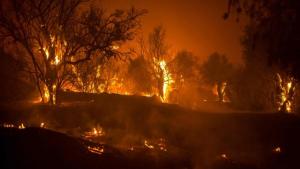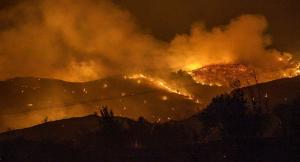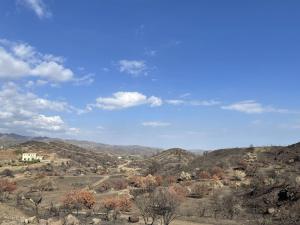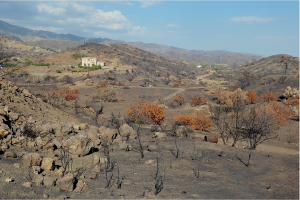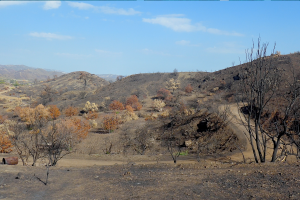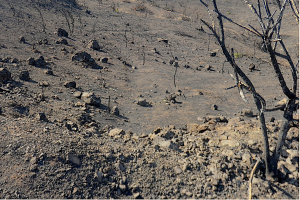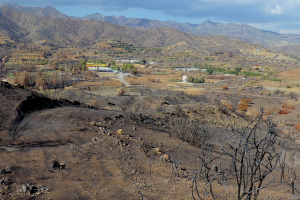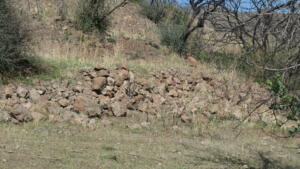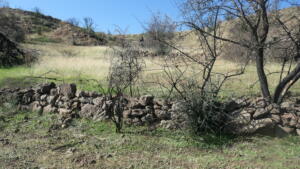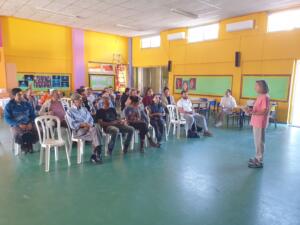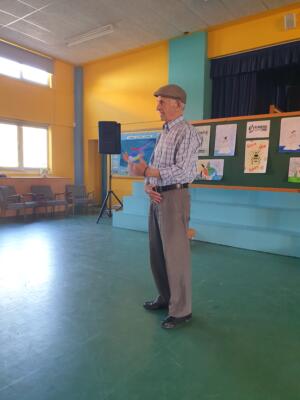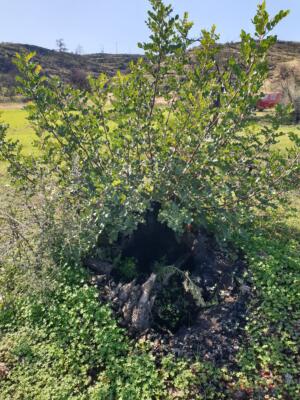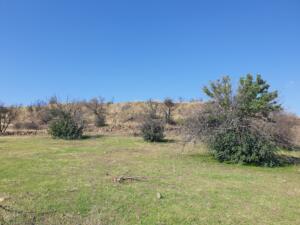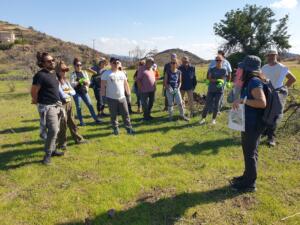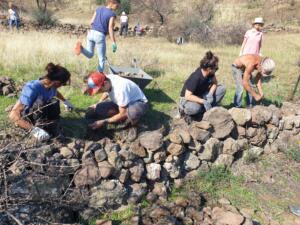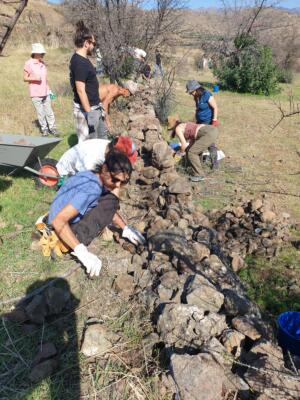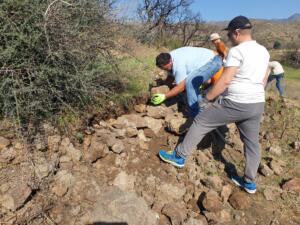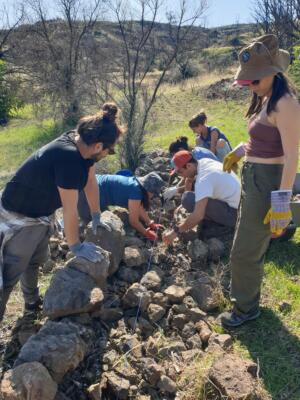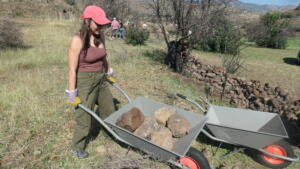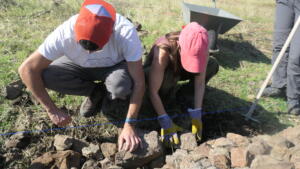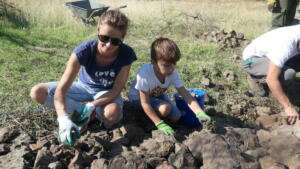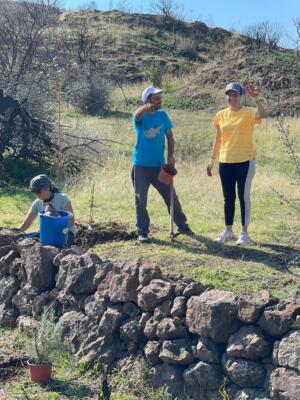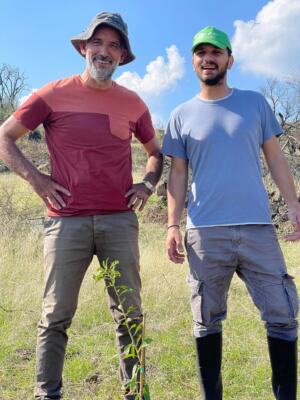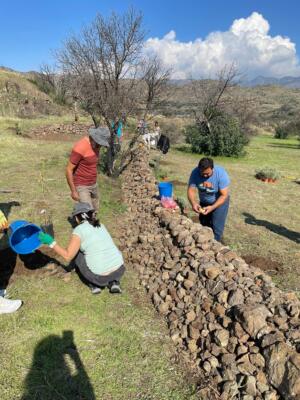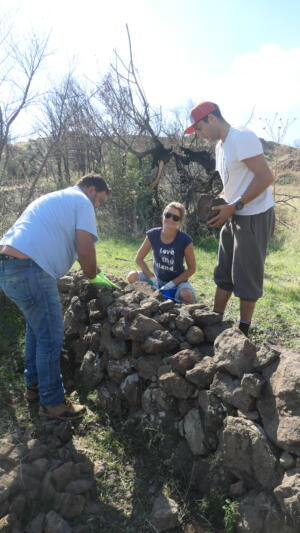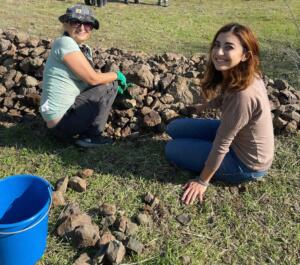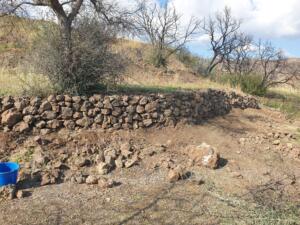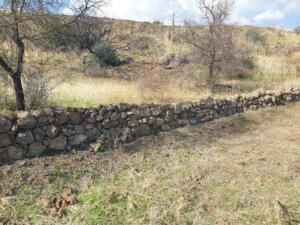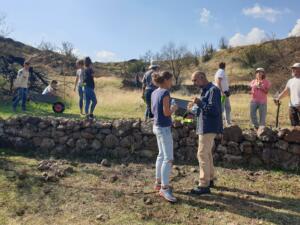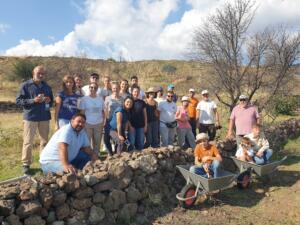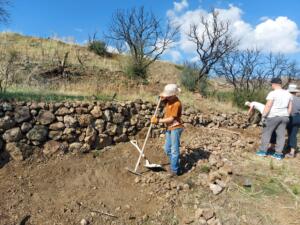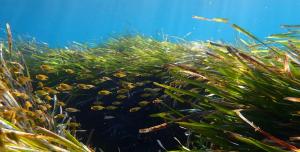
Grants
Regenerative Land Use
Greening Cyprus in the Fire-Affected Areas
€6800 awarded
Project duration: 04/2022 – 02/2023
Status: Completed
The challenge
The recently fire-affected uplands of Larnaca have been confronting a sudden loss of productive soil, habitats and ecosystems in forests and agricultural land affected by the recent wildfires in summer 2021. The immediate cause of this challenge were human activities initially causing the devastating wildfire and followed, in several cases, by further disturbance due to immediate clearing and replanting on denuded land. There are also additional underlying causes, such as failure to maintain terraces, and even ignorance as to their importance in fire and soil loss containment; indifference about Nature and sustainability, refusal to obey the laws e.g., field clearings by burning, throwing lit cigarettes out of a car, plus lack of early warning systems and very limited training in fire-fighting for locals that could constitute the immediate, first line of defence. Additionally, many privately-owned fields have been abandoned and have reverted to forested lands. Terraces in such lands are abandoned as well and repeated fires and erosion have damaged or fully destroyed them. Since absentee owners have no interest in cultivating the fields, the cycle of destructive fires and erosion continues.
The solution
The project aims to initiate an exemplary land restoration demonstrating effective rehabilitation measures to local citrus, olive and vegetable growers, and to authorities, especially in the face of climate change where torrential rains are sweeping away the now treeless soil and summer temperatures are parching the earth. The state has taken active containment measures in state forests, but private owners need guidance. The project’s goal is to complete a pilot restoration on a burnt-out piece of land using 30 volunteers drawn from locals and from the organization Plant 300k Trees. Over five weekends three instructors, will each train and monitor up to ten persons ‘on the job’. Prior to training, a land use plan will be drawn up, the land will be cleared in a non-invasive way and appropriate plants will be secured. The presidents of the local communities, support Laona Foundation’s initiatives and will assist the training process. Teachers at the regional primary school will also be involved as they are environmentally sensitive and are already implementing small ‘green’ projects at the local schools. With terracing work under way, the volunteers will proceed to predesigned tree planting.
Project’s deliverables
- A land use plan stating the metres of walls to be rebuilt and trees/shrubs planted.
- A repeatable training programme for five weekends in terrace building and planting.
- 40-50 linear meters of restored terracing.
- 100-200 trees/bushes planted after the terrace has been restored.
- 30 trained volunteers.
- A kick-off event to introduce the project to local civil society.
- A closing event to demonstrate what has been achieved to all stakeholders.
- Guidance to teachers concerning the ecological developments expected and what to look out for with their classes.
- Plant 100 native trees and shrubs in the restored fire affected plot with the addition of drought stress alleviation amendments (beneficial microbes, natural minerals, biochar) and mulching during establishment.
Project updates
- Drywall workshop announcement in Greek & English: November & December 2022
- A land use plan stating the metres of walls to be rebuilt and trees/shrubs planted.
- Tree planting invitation for Saturday 28th January 2023.
A bit about the organization
For the last 30 years Laona Foundation for the Conservation and the Regeneration of the Cypriot Countryside (est. 1992) has been involved in countryside issues, starting from Paphos region, and extending to the whole island (including co-operations in the north), as well as the Mediterranean. Issues have included raising awareness of the Landscape Convention and mapping the landscape, protecting vernacular buildings, training architects in correct restoration methods, raising awareness about climate change and its effect on agriculture and promoting sustainable resources usage and re-use. Laona’s work has always involved local authorities and interest groups with the aim of encouraging sustainable development without losing the community character and the authenticity of their products. The organization has secured funding from EU programmes such as LIFE, ENPI, INTERREG, from UN agencies and national grants. In recent years they have focused on soil preservation and protection from erosion, for ecological, agricultural, and economic reasons. Several of their projects are bi-communal with a current one involving 18 GC and TC primary school teachers to introduce them to sites of environmental importance from which they learn about issues which can be introduced into their lessons.

